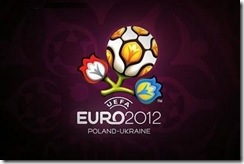- 2008 Spain
- 2004 Greece
- 2000 France
- 1996 Germany
- 1992 Denmark
- 1988 Netherlands
- 1984 France
- 1980 Germany
- 1976 Czechoslovakia
- 1972 Germany
- 1968 Italy
- 1964 Spain
- 1960 USSR
HISTORY
The idea for a pan-European football tournament was first proposed by the French Football Federation’s Henri Delaunay in 1927, but it was not until 1958 that the tournament was started. In honour of Delaunay, the trophy awarded to the champions is named after him. The 1960 tournament, held in France, had 4 teams competing in the finals, out of 17 that entered the competition. It was won by the Soviet Union, beating Yugoslavia 2–1 in a tense final in Paris. Spain withdrew from its quarter-final match against the USSR due to political protests. Of the 17 teams that entered the qualifying tournament, notable absentees were England, West Germany and Italy.
Spain held the next tournament in 1964, which saw an increase in entries to the qualification tournament, with 29 entering; however, Greece withdrew after being drawn against Albania, with whom they were still at war. The hosts beat the title holders, the Soviet Union, 2–1 at the Santiago Bernabeu Stadiumin Madrid.
The tournament format stayed the same for the 1968 tournament, hosted and won by Italy. For the first and only time a match was decided on a coin toss (the semi-final against the Soviet Union) and the final went to a replay, after the match against Yugoslavia finished 1–1. Italy won the replay 2–0. More teams entered this tournament (31), a testament to its burgeoning popularity.
Belgium hosted the 1972 tournament, which West Germany won, beating the USSR 3–0 in the final in Brussels. This tournament would provide a taste of things to come, as the German side contained many of the key members of the 1974 FIFA World Cup Champions.
The 1976 tournament in Yugoslavia was the last in which only four teams took part in the final tournament, and the last in which the hosts had to qualify. Czechoslovakia beat West Germany in the newly introduced penalty shootout, with Antonín Panenka’s famous chipped shot.
The competition was expanded to eight teams in the 1980 tournament, again hosted by Italy. It involved a group stage, with the winners of the groups going on to contest the final, and the runners-up playing in the third place play-off. West Germany won their second European title by beating Belgium 2–1 at the Stadio Olimpico in Rome.
France won their first major title at home in the 1984 tournament, with their captain Michel Platini scoring 9 goals in just 5 games, including the opening goal in the final, in which they beat Spain 2–0. The format also changed, with the top two teams in each group going through to a semi-final stage, instead of the winners of each group going straight into the final. The third place play-off was also abolished.
West Germany hosted UEFA Euro 1988, and the Netherlands beat the hosts—and traditional rivals—2–1 in the semi-finals, which sparked vigorous celebrations in the Netherlands. The Netherlands went on to win the tournament, beating the USSR 2–0 at the Olympia Stadion in Munich, a match in which Marco van Basten scored one of the most memorable goals in football history, a spectacular volley over the keeper from the right wing.
UEFA Euro 1992 was held in Sweden, and was won by Denmark, who were only in the finals because UEFA did not allow Yugoslavia to participate as some of the states constituting the Socialist Federal Republic of Yugoslavia were at a state of war with each other. However, the Danes produced a shock, edging-out holders the Netherlands on penalties in the semi-finals, then defeating world champion Germany 2–0. This was the first tournament in which a unified Germany took part and also the first major tournament to have the players’ names printed on their backs.
England hosted UEFA Euro 1996, the first tournament to use the nomenclature “Euro [year]” and would see the number of teams taking part double to 16. The hosts, in a replay of the 1990 FIFA World Cup semi-final, were knocked out on penalties by Germany, who would go on to win in the final 2–1 against the newly-formed Czech Republic thanks to the first golden goal ever in a major tournament, scored by Oliver Bierhoff. This was Germany’s first title as a unified nation.
UEFA Euro 2000 was the first tournament to be held by two countries, the Netherlands and Belgium. France, the reigning world champion, was favored to win, and they lived up to expectations when they beat Italy 2–1 after extra time, having come from being 1–0 down: Sylvain Wiltord equalized in the very last minute of the game and David Trezeguet scored the winner in extra time.
UEFA Euro 2004, like 1992, produced an upset: Greece, who had only qualified for one World Cup (1994) and one European Championship (1980) before, beat host Portugal 1–0 in the final (after having also beaten them in the opening game) to win a tournament that they had been given odds of 150–1 to win before it began. On their way to the final they also beat holders France as well as the Czech Republic with a silver goal, a rule which replaced the previous golden goal in 2003, before being abolished itself shortly after this tournament.
The 2008 tournament, hosted by Austria and Switzerland marked the second time that two nations co-hosted, and the first edition where the new trophy was awarded. It commenced on 7 June and finished on 29 June. The final between Germany and Spain was held at the Ernst Happel Stadion in Vienna. Spain defeated Germany 1–0, sparking much celebration across the country. This is their first title since the 1964 tournament.
by kerim (uefa.com)



Long story short.